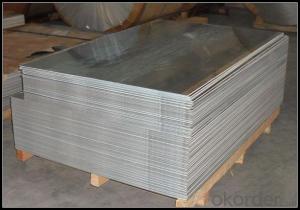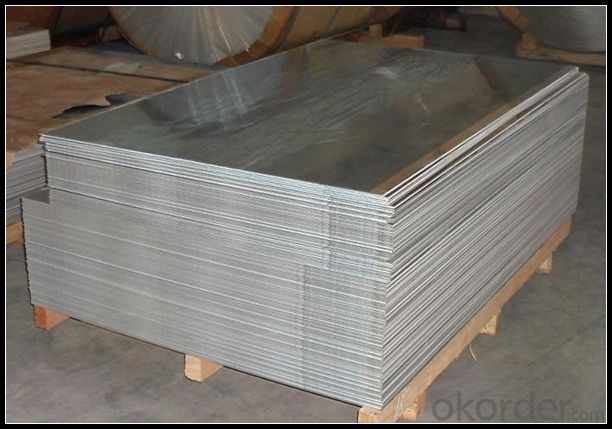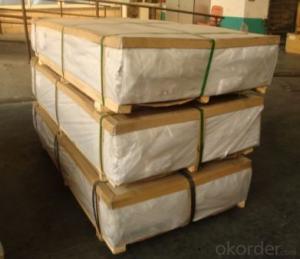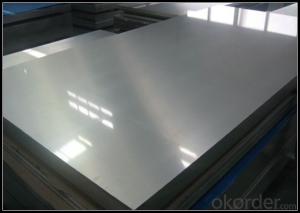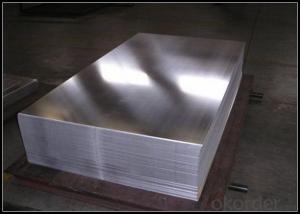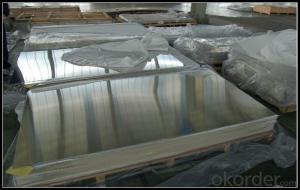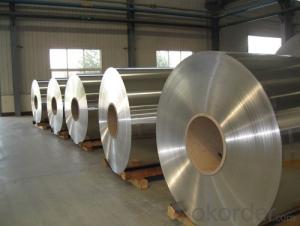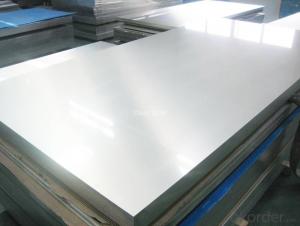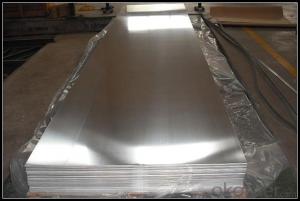5052 Mill Finish Aluminum Sheet Alloy AA1050 for Curtain Wall
- Loading Port:
- Shanghai
- Payment Terms:
- TT OR LC
- Min Order Qty:
- 5 m.t.
- Supply Capability:
- 10000 m.t./month
OKorder Service Pledge
OKorder Financial Service
You Might Also Like
Specification
1. Specification of Mill Finish Aluminium Sheet Alloy AA1050 for Curtain Wall
Alloy Number | AA1xxx 3xxx 5xxx |
Temper | H12, H14, H16, H18, H22, H24, H26, H32, HO, F |
Thickness | 0.1mm – 500mm |
Width | 10mm- 2200mm |
Standard | GB/T3880-2006, ASTM, ISO, EU standard |
2. Application of Mill Finish Aluminium Sheet Alloy AA1050 for Curtain Wall
(1).Interior: wall cladding, ceilings, bathrooms, kitchens and balconies, shutters, doors...
(2).Exterior: wall cladding, facades, roofing, canopies, tunnels,column covers , renovations...
(3).Advertisement: display platforms, signboards, fascia, shop fronts...
3. Feature of Mill Finish Aluminium Sheet Alloy AA1050 for Curtain Wall
Surfact Quality :
Be free from Oil Stain, Dent, Inclusion, Scratches, Stain, Oxide Dicoloration, Breaks, Corrosion, Roll Marks, Dirt Streaks and other defect which will interfere with use,
Mechenical Property:
Chemical Composite and Mechanical Property
4. Certificate:
SGS and ROHS(if client request, paid by client), MTC(plant provided), Certificate of Origin(FORM A, FORM E, CO), Bureau Veritas and SGS (if client request, paid by client), CIQS certificate
5. Image of Mill Finish Aluminium Sheet Alloy AA1050 for Curtain Wall
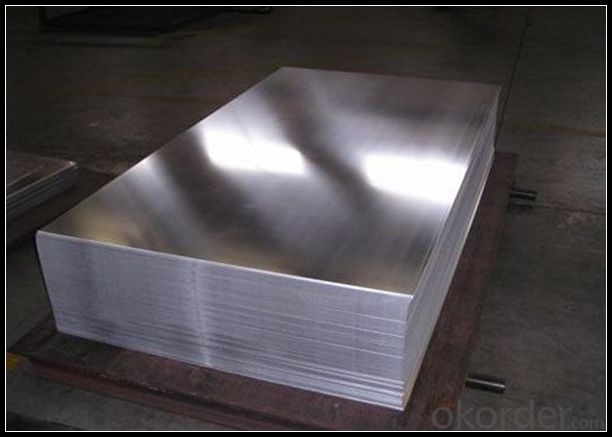
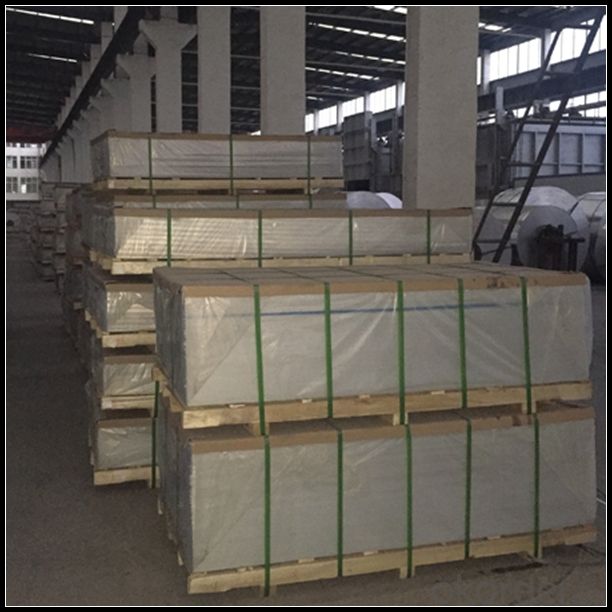
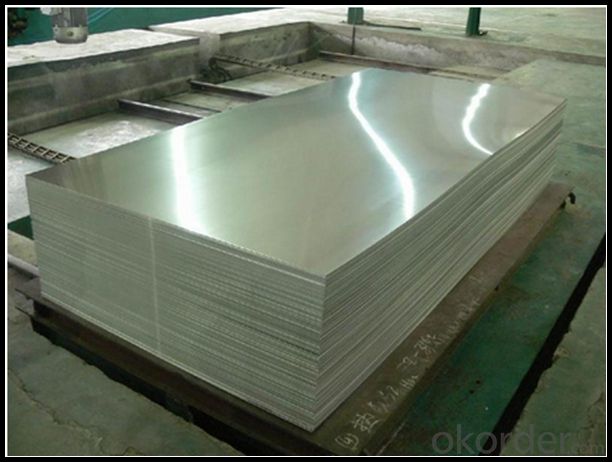
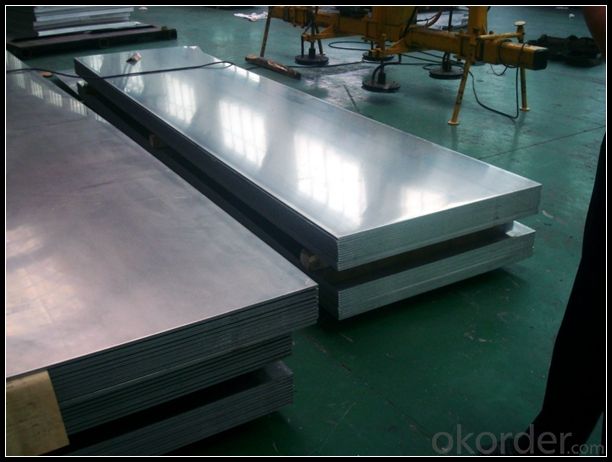
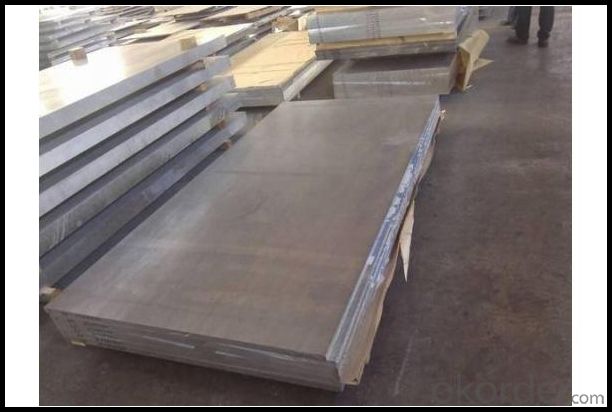
6. Package and shipping of Mill Finish Aluminium Sheet Alloy AA1050 for Curtain Wall
First, plastic cloth with drying agent inside; Second, Pearl Wool ; Third, wooden cases with dry agent , fumigation wooden pallets, aluminum surface could cover blue PVC film
7. FAQ
1) What is the delivery time?
Dpends on actual order, around 20 to 35 days
2)What is the QC system:
We have QC staff of 20 persons and advanced equipment, each production is with MTC traced from Aluminum ingot lot.
3) What market do you mainly sell to?
Australia, America, Asia, Middle East, Western Europe, Africa etc
- Q: Are aluminum sheets suitable for wastewater treatment applications?
- Yes, aluminum sheets are suitable for wastewater treatment applications. Aluminum is highly resistant to corrosion and can withstand harsh chemicals commonly found in wastewater. Additionally, aluminum sheets can be easily formed into various shapes and sizes, making them suitable for use in tanks, pipes, and other wastewater treatment equipment.
- Q: How do you prevent galvanic corrosion when using aluminum sheets with saltwater?
- To prevent galvanic corrosion when using aluminum sheets with saltwater, there are several steps that can be taken: 1. Apply protective coatings: One effective method is to apply a protective coating to the aluminum sheets. This can be done by using specialized marine-grade paints or coatings that are designed to prevent corrosion in saltwater environments. The coating acts as a barrier between the aluminum and the saltwater, reducing the likelihood of galvanic corrosion. 2. Use isolation materials: Another approach is to use isolation materials, such as rubber or plastic gaskets, between the aluminum sheets and any dissimilar metals that may come into contact with them. These materials prevent direct contact between the aluminum and other metals, minimizing the risk of galvanic corrosion. 3. Galvanic corrosion inhibitors: Adding galvanic corrosion inhibitors to the saltwater can help mitigate the risk of corrosion. These inhibitors work by creating a protective layer on the aluminum surface, preventing the electrochemical reactions that lead to galvanic corrosion. 4. Cathodic protection: Employing cathodic protection techniques can also help prevent galvanic corrosion. This involves connecting the aluminum sheets to a sacrificial anode made from a more active metal, such as zinc or magnesium. The sacrificial anode corrodes instead of the aluminum, protecting it from galvanic corrosion. 5. Proper maintenance: Regularly cleaning and maintaining the aluminum sheets is crucial for preventing galvanic corrosion. Saltwater and other contaminants can accumulate on the surface, promoting corrosion. Cleaning the sheets with fresh water and removing any salt deposits can help prolong their lifespan and reduce the risk of galvanic corrosion. It is important to note that these preventive measures should be implemented in conjunction with proper material selection and design considerations. Consulting with corrosion experts or engineers who specialize in marine applications can provide further guidance on the specific requirements and best practices for preventing galvanic corrosion when using aluminum sheets with saltwater.
- Q: What's the maximum size of 3 mm thick aluminum sheet?
- See tolerance taggingIf there is no tolerance, see the accuracy level of the workpiece and check the tolerance listA 3-4 mm deviation is acceptable if the magnitude is not noted and is of no importanceThat is, the 3.5mm is OK, if the lower accuracy is generally 2.95
- Q: How do aluminum sheets perform in terms of electrical insulation?
- Aluminum sheets do not possess notable electrical insulation properties. Being a highly conductive metal, aluminum enables the easy flow of electric current. Consequently, effective electrical insulation cannot be attained with aluminum sheets. In situations where electrical insulation is necessary, alternative materials like plastics or ceramics would be more appropriate choices.
- Q: What are the fire resistance properties of aluminum sheets?
- Aluminum sheets have excellent fire resistance properties due to their high melting point and low flammability. When exposed to fire, aluminum forms a protective oxide layer that acts as a barrier, preventing further heat transfer and combustion. This makes aluminum sheets a reliable choice for applications where fire safety is a concern.
- Q: What is the maximum temperature aluminum sheets can withstand?
- The maximum temperature that aluminum sheets can withstand depends on several factors, including the alloy composition and thickness of the sheet, as well as the specific application and environment in which it is being used. Generally, pure aluminum has a melting point of around 660 degrees Celsius (1220 degrees Fahrenheit), but it begins to lose strength and stiffness at much lower temperatures. Most commercial aluminum alloys have higher melting points and can withstand higher temperatures. For example, 6061 aluminum alloy has a melting point of around 580 degrees Celsius (1076 degrees Fahrenheit), while 7075 aluminum alloy has a slightly higher melting point of around 640 degrees Celsius (1184 degrees Fahrenheit). However, it is important to note that the maximum temperature a sheet of aluminum can withstand without significant deformation or structural damage may be lower than its melting point. This is because aluminum's strength and mechanical properties degrade at elevated temperatures. In applications where aluminum sheets are subjected to high temperatures, it is crucial to consider the specific alloy and its thermal properties, as well as any potential changes in strength, hardness, or other relevant characteristics that may occur at elevated temperatures. Consulting material specifications, engineering guidelines, or seeking professional advice from metallurgical experts can provide more accurate and specific information regarding the maximum temperature capabilities of aluminum sheets for a particular application.
- Q: What are the different heat treatment options available for aluminum sheets?
- Some of the different heat treatment options available for aluminum sheets include solution heat treatment, precipitation hardening, annealing, and stress relieving.
- Q: Can the aluminum sheets be used in the construction industry?
- Yes, aluminum sheets can definitely be used in the construction industry. Aluminum is a versatile and lightweight material that offers several advantages for construction applications. It is corrosion-resistant, which makes it ideal for outdoor structures and buildings. Aluminum sheets are commonly used for roofing, siding, window frames, doors, and other architectural elements. Additionally, aluminum's high strength-to-weight ratio allows for the construction of durable and efficient structures. Its malleability also makes it easy to fabricate and shape into various forms, allowing for creative and innovative designs in construction projects. Overall, aluminum sheets are a popular choice in the construction industry due to their durability, versatility, and aesthetic appeal.
- Q: Are aluminum sheets suitable for decorative screens?
- Yes, aluminum sheets are suitable for decorative screens. They are lightweight, durable, and can be easily customized into various shapes and designs. Additionally, aluminum's corrosion resistance makes it suitable for both indoor and outdoor applications, making it a popular choice for decorative screens.
- Q: This question asks for a method to measure the thickness of an aluminum sheet.
- <p>To determine the thickness of an aluminum sheet, you can use a micrometer or a caliper, which are precise measuring tools. Place the sheet on a flat surface and measure from one side to the other at multiple points to account for any inconsistencies. Alternatively, you can use an ultrasonic thickness gauge, which is especially useful for non-contact measurements. For a quick estimate, a simple ruler can give you a rough idea, but for high precision, specialized tools are necessary. Always ensure the measuring device is calibrated and used correctly to get accurate results.</p>
Send your message to us
5052 Mill Finish Aluminum Sheet Alloy AA1050 for Curtain Wall
- Loading Port:
- Shanghai
- Payment Terms:
- TT OR LC
- Min Order Qty:
- 5 m.t.
- Supply Capability:
- 10000 m.t./month
OKorder Service Pledge
OKorder Financial Service
Similar products
Hot products
Hot Searches
Related keywords
